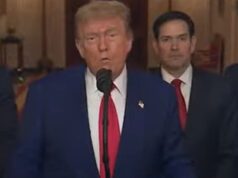ADVERTISEMENT
At the heart of one of the most pressing ethical debates of the 21st century lies the issue of forced organ harvesting in China.
This practice, widely condemned internationally, has been linked to the Chinese Communist Party (CCP) regime and is seen as a blatant abuse of human rights.
In particular, ethnic and religious minorities, as well as prisoners of conscience—such as practitioners of Falun Gong and Uyghurs—have been identified as the primary victims of this horrific crime.
A Systematic and Brutal Practice
Since 2006, independent investigations have uncovered that China has carried out thousands of organ transplants under suspicious circumstances.
Canadian lawyers David Matas and the late David Kilgour discovered that, between 2000 and 2005, China performed over 41,500 transplants without an organized organ donation system in place.
This raises disturbing questions, especially considering that Chinese culture traditionally does not encourage voluntary organ donation.
The China Tribunal, an independent tribunal based in London, concluded in 2019 that forced organ harvesting in China has been proven beyond a reasonable doubt . The court found evidence that prisoners of conscience, particularly Falun Gong practitioners, have been killed for their organs.
The Role of Persecuted Minorities
Falun Gong practitioners, a spiritual group based on the principles of Truth, Compassion, and Tolerance, have faced severe persecution since 1999. Reports indicate that many of them have undergone specific medical tests, such as blood analyzes and tissue examinations, preliminary steps for compatibility assessment for organ transplants.
Similarly, Uyghurs, a Muslim minority in Xinjiang, have also become targets of this practice, according to human rights organizations.
The Complicit Silence of the International Community
Although many countries have taken measures against organ harvesting, the international response has been fragmented. The World Medical Association passed a resolution in 2006 demanding China halt these practices. However, China insisted that its 2015 reforms had ended the extraction of organs from prisoners without their consent. Subsequent investigations have contradicted these claims, revealing that the problem persists.
The United States has taken a more assertive approach. In March 2024, the Congressional-Executive Commission on China held a hearing to address this issue .
Lawmakers such as Chris Smith and Marco Rubio have urged the Department of State to take concrete actions, including sanctions targeting Chinese officials involved in these crimes.
Forensic Evidence and Testimonies
Evidence also comes from survivors such as Cheng Peiming, a Falun Gong practitioner who managed to escape to the United States after being subjected to organ harvesting surgeries.
Medical studies conducted in his new country confirmed the removal of parts of his liver and lung.
In addition, research from Western universities has documented discrepancies between official transplant data in China and the current number of voluntary donors. For example, during a 10-day period in 2016, 880 transplants were performed, but only 135 voluntary donors were recorded—an alarming discrepancy.
Ethical Implications and Final Reflection
The international medical community faces an ethical dilemma: How can they collaborate with a system potentially involved in crimes against humanity? Eleanor Stephenson, a bioethics attorney, warns that any substantial interaction with China in the field of organ transplants could make medical professionals complicit in these abuses.
Forced organ harvesting represents not only a violation of human rights but also a direct attack on the ethical principles of medicine. It is imperative that governments and international organizations intensify efforts to investigate and sanction these practices. Ignoring this issue amounts to indirectly validating one of the most atrocious crimes of our era.
The call to action is clear: transparency, sanctions, and the severity of relations with institutions involved are necessary steps to ensure that medicine remains a field dedicated to saving lives—not exploiting them.
About The Author









